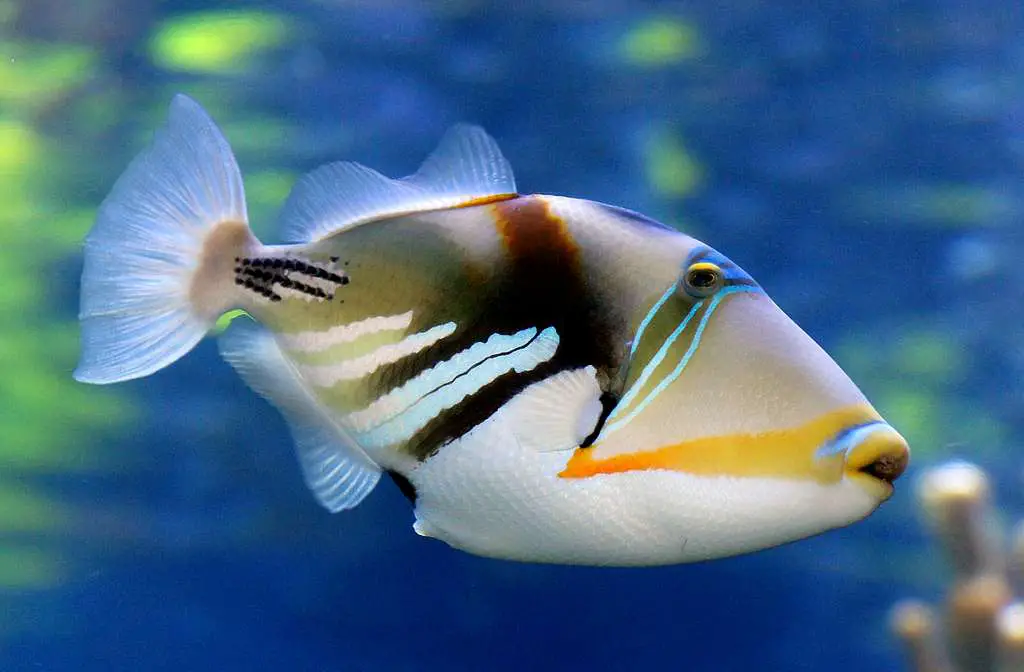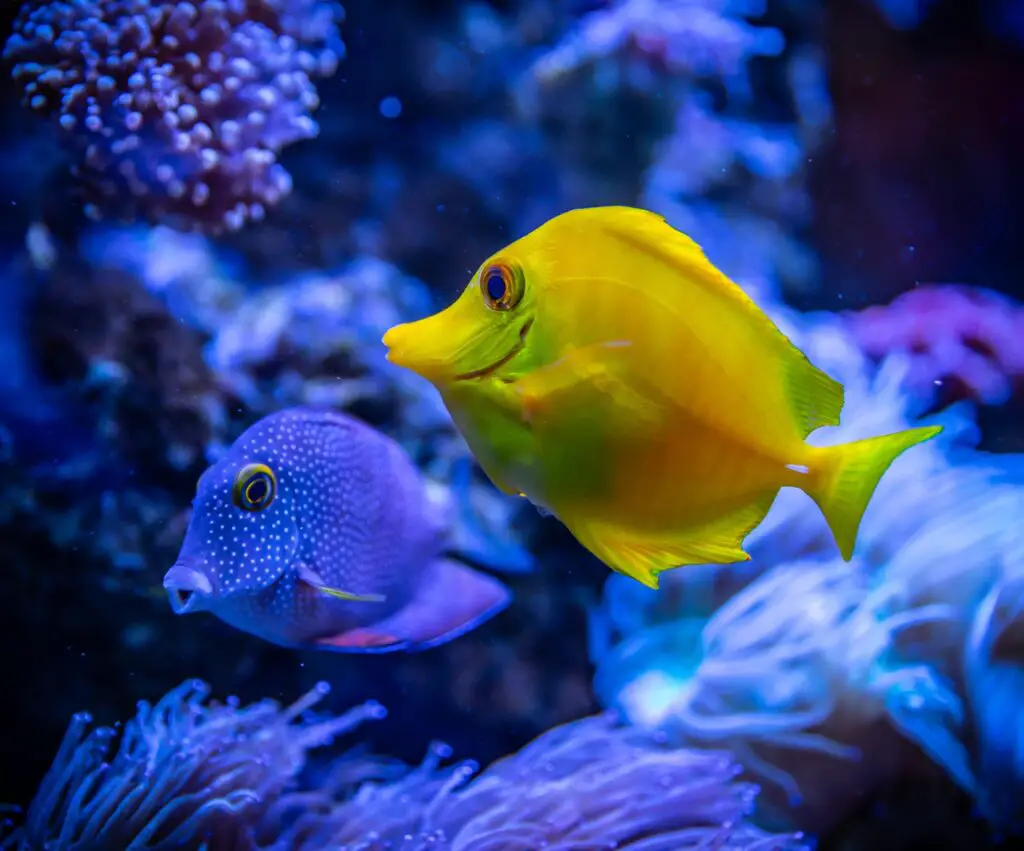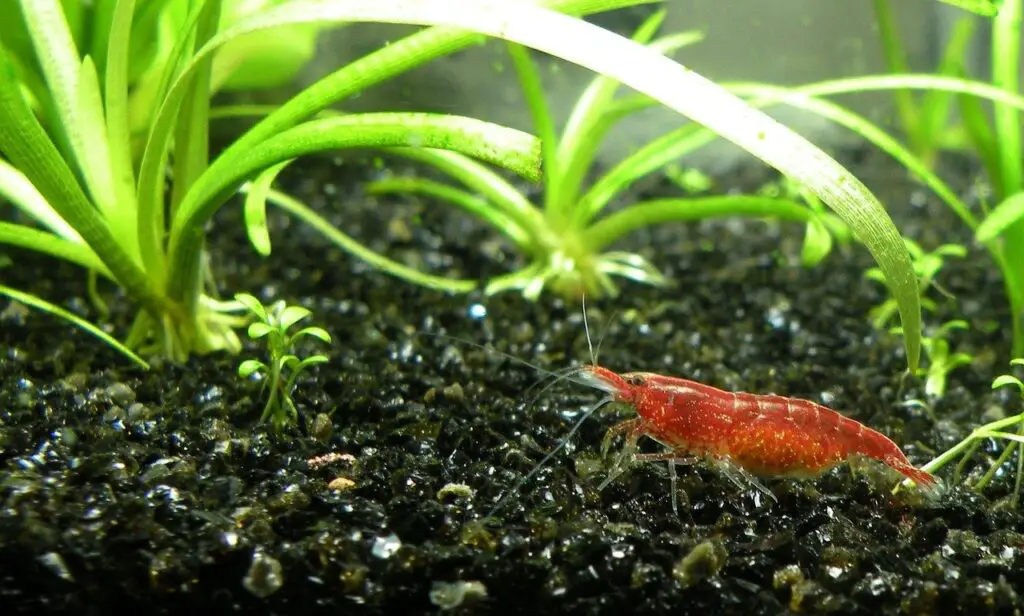Every once in a while, most people will think up a question that they have no way of getting an answer for. If you own an aquarium, maybe you’ve wondered, can fish get drunk?
Yes, fish can get drunk on alcohol just like humans and other animals. That being said, fish should never be given alcohol, because not only does it cause them harm, it can kill them.
Since fish live in water, it might be hard to imagine a way in which they can get drunk, but you may be surprised to find out that scientists have actually done a fair amount of research on fish drunkenness. Read on to find out more!
Can Fish Get Drunk?
It might sound crazy, but yes, fish can get drunk. When ethanol alcohol is added into the water that a fish is swimming in, the fish becomes drunk, just like a person drinking alcohol would. With fish, though, they aren’t exactly drinking this alcohol.
You might be shocked to learn that even though they live in water full time, fish do actually need to take in water to survive. But the way in which fish drink water, including the alcohol-laced water a fish would need to get drunk, isn’t actually drinking at all.
Fish take in water through a process called osmosis. Osmosis, as described by Merriam-Webster, is a process of absorption or diffusion. Fish perform osmosis through their gills; gills absorb water, and through the water, any additives that are also in it. This is how fish get drunk–by absorbing alcohol or alcohol-laced water through their gills by osmosis.
While it was always assumed that fish, like most other living creatures, would be affected by alcohol, a 2014 study performed by scientists at the NYU Polytechnic School of Engineering’s Dynamical Systems Laboratory concluded without question that a fish could get drunk just like a person. This includes changes in their behavior and motor skills.
What Happens if a Fish Gets Drunk?
One of the strangest things about fish drunkenness is how closely it resembles the same sort of inebriation in humans. Fish that were given alcohol in the aforementioned study didn’t just become lethargic or fall asleep; there were really, tangible changes in their behaviors, including inhibitions and leadership skills.
In the NYU study, individual fish were placed into water containing different concentrations of ethanol alcohol, ranging from a concentration of 0.00, 0.25, 0.50, and 1.00%. There was also a control fish subject placed in water with no alcohol.
The results were surprising! The fish that had been placed in the water with the lower concentrations of ethanol became more energetic and swam faster than the other fish in their school when they were placed back with them. This speediness influenced the other sober fish to swim faster as well.
But the fish that were placed in the water with the highest concentration of the ethanol alcohol became slower and more lethargic than the other sober fish. Some of their behavior could even be described as confused.
Within a day, the fish that had gotten drunk had returned to normal, indicating that the effects of the alcohol on their systems were temporary. So, in summary, smaller amounts of alcohol make fish lose their inhibitions, and larger amounts make them clumsy and sluggish.
There is something very important to remember about these findings, though. The aforementioned research was performed under very careful, controlled scientific conditions by experts. Experiments like this should never be recreated at home.
These exact measurements of alcohol may get a fish drunk, but it’s incredibly easy to add too much alcohol to a fish’s water, which can burn their skin and gills, and even kill them outright. Just like humans can get sick and die from too much alcohol, so can fish.
How Do Fish Get Drunk? (How Do They Behave)
Fish get drunk by absorbing alcohol through their gills through a process we mentioned earlier called osmosis. The gills are what a fish uses to breathe, but also to absorb the water that they need to live, so when alcohol is added to the water that a fish is living in, it is also absorbed through the gills.
This can be very dangerous for fish, as alcohol can burn their sensitive gill tissue and skin, and even cause toxicity and death in high enough amounts.
Behavior wise, fish exposed to small amounts of alcohol may swim faster or become lethargic depending on the concentration of the alcohol in the water. Fish exposed to a large amount of alcohol will show clear signs of distress and may eventually pass.
How Much Alcohol Can Fish Have?
When alcohol levels were tested with fish, the highest concentration of alcohol they were given was 1% alcohol per the volume of the water the fish was in. This amount translates to higher than than the legal blood alcohol level in humans, which is .08% for people in the US.
The fish that received this dose of alcohol were sluggish and tired.
If alcohol comes into direct contact with a fish’s gills without being diluted with water, it’s likely the fish will die. So this means fish cannot have much alcohol at all, otherwise they will fail to thrive.
Does Alcohol Kill Fish?
Yes, alcohol kills fish in high enough concentrations. When we say concentration, we are referring to the amount of alcohol in the fish’s water, and the highest concentration that has been tested for results is 1% concentration of alcohol in water.
Some fishermen carry spray bottles of alcohol, usually high-proof vodka, in their boats to spray caught fish in the gills with. This is a mess-free, effective way to dispatch fish before cleaning, but it also proves that alcohol can definitely kill fish, which is why it should be avoided for pet fish at all times.
Can Sharks Get Drunk?
Since sharks are fish, they can also get drunk.
A shark may have very little in common with something like a goldfish, but sharks are technically fish, and like all fish, they breathe and absorb water through their gills. Since sharks also take in water through their gills, they can get drunk in the same way fish can–osmosis.
Sharks can be very large, so it may take a lot of alcohol to get a shark drunk, but it is certainly possible.
Meta Description
Can fish get drunk? This isn’t a mystery you can solve on your own, so read on to find out more!



